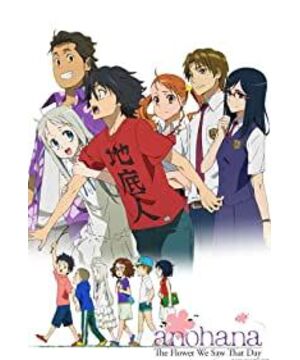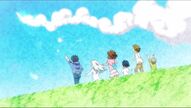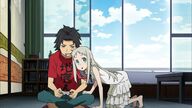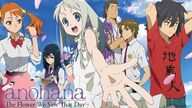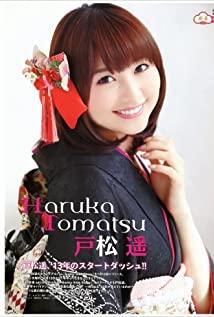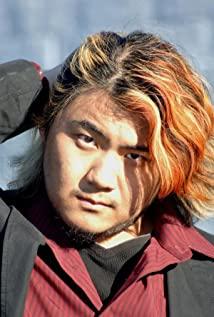feeling in my mind.
What kind of new show is this, and what kind of story is it telling? This is a completely confusing topic.
How should I put it, if I want to look at youth, I would rather watch Dazhen's more exaggerated but more straightforward works. And I feel a little impatient that this work has to torture everyone to cry together. But put aside those intricate relationships where A likes B likes C likes D. This work still tries to express something to us.
First about the topic. We don't know the name of the flower we saw that day.
I began to learn to get to the bottom of things, and I didn't understand the need to google it when I grew up. If you forget where you saw it, thinking that you can understand everything is actually a kind of arrogance. When we really grow up, when we stand in front of the society of the age of complete information, we gradually become adults who like to hide and dig deeper. Gone are the days when the idea was simple, but really anything could be done, those days when you didn't need to know the names of those flowers, just because of their beauty, you would feel happy.
And Su Hai and the others grabbed the tail of those days.
There are six protagonists in this work, Sukai, Honma, Matsu, Anjo, Tsurumi, and Hisagawa. Among them, Honma, that is, Mianma, died against the water at a young age, and then became the summer beast wearing a white ワンピ in the head of the male protagonist Erzakuju Haimin.
This work has been telling us a fact repeatedly, that is, although everyone has changed a lot at first glance, in fact, looking inside, everyone has not changed.
I think it's not so much that they haven't changed, it's better to say that all of them haven't changed because they are in a period of collision between their past childhood and the present. If they want to change, they must go back to the summer that came to an abrupt end.
"It would be nice if that person wasn't there."
"It would be nice if that thing could be done all over again."
All the ifs that have appeared in our childhood memories are all realized in this work. But after it was realized, it was discovered that those were not the pink bubbles we imagined when we were young, but all of them were sharp blades that hurt people. Suhai who is squatting at home, Xueji who wears women's clothes, Ancheng who goes with the flow, Bobo who hides his secrets, even Tsurumi who has been silently watching, and Honma who has lost a child. All were forced to cry by reality. Want to move forward, want to move forward, step forward. Why can't we forget?
Not that there is no change, but that there is no escape from the past.
Although the snow set women's clothing incident broke out not long after the childhood companions reunited, it was indeed very shocking visually, but I think the most shocking part of the whole work should be the five of them when they were carrying fireworks. inner monologue. People who want to make Mianma Buddha and Su Hai who want to escape from reality and keep the status quo. What the writers are trying to express here is a human conflict. (The appearance of such serious words is really a blessing to Nasser... Personally, I hold it precisely because this description is too real, so that after the face code did not become a Buddha, the situation turned 180° and the plot of running towards the bloody youth became a little unacceptable. .Compared with 10 episodes, 11 episodes can be said to be unfinished. Of course, the last episode still earns tears quite a fact, but it is very unwilling to earn it)
So, it is not so much that this is a waving to youth It is better to say that it is a work that says goodbye to childhood.
In the summer when the Summer Beast appeared, Suhai and the others went back to the past. After sorting out the feelings that had no clue at the time, after expressing the apology that was impossible to accept, he expressed the love that was completely impossible to express at that time. Then passed that summer and ushered in a different winter. Suhai and their time began to move forward again. No longer want to escape, but the real departure from that summer. (こら! Did I distort it into a hot-blooded story?)
While watching this new show off and on, I happened to be reading Liu Cixin's Era of Supernova. Which of the adult's intentionality or the child's unconsciousness can be more truly cruel. And starting from the cruelty of redemption, I think this story about the abrupt end of summer and the beast of summer is a good story.
View more about Anohana: The Flower We Saw That Day reviews


